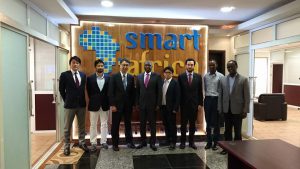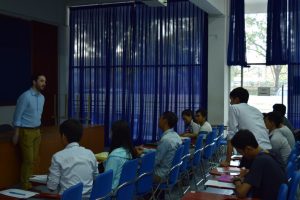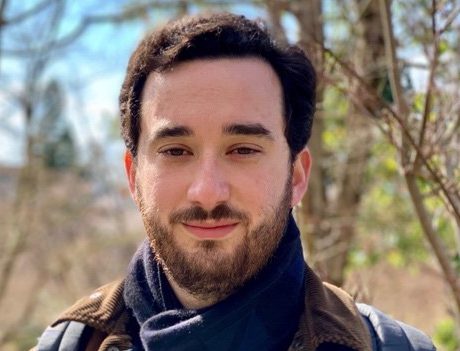Trained for most of my life in theoretical mathematics and space engineering, it was a great challenge for me to join the GraSPP PhD program. Being passionate from my early childhood about history, politics and philosophy, I always had the idea of formally studying international affairs after all these serious sciences. What convinced me to fulfil this old desire happened in 2016 while I was pursuing my second master’s degree in space engineering at The University of Tokyo, working on the computation of interplanetary trajectories for the EQUULEUS satellite in the laboratory of Professor Shinichi Nakasuka. At this time, I was proposed to join a taskforce of the National Space Policy Secretariat, Cabinet Office, to support Japanese space diplomacy. Becoming involved on a daily basis in governmental affairs led me to make the long-awaited decision: I will enroll in a PhD program in international affairs! Having clarified my expectations, I consulted Professor Hideaki Shiroyama, who agreed to supervise me. After entering the GraSPP International Security PhD program, I started my research on a complex issue of contemporary space policy: the establishment of an international regime for space traffic management.
Now in my second year of PhD, I can say without hesitation that the GraSPP PhD program lived up to my expectations, mostly for two reasons. The first reason is that, beyond its undoubtable academic excellence, the GraSPP faculty is composed of experienced national and international civil-servants. When I decided to enter a PhD program, I wanted at all-cost to avoid the risk of being restricted to academia and learning from such successful practitioners is extremely valuable for building my own career. Which leads to the second reason why I enjoy my time in GraSPP: the program’s structure allows me to combine my academic research with professional activities. Apart from working on my thesis, I am able to pursue several professional goals, critical for my future career: I work as space engineering researcher for my former laboratory, I advise various ministries (e.g. Cabinet Office and MEXT) and private companies. Being involved in various international space projects of the Japanese government allows me to travel all around the world on a monthly basis, and face challenges that I am really proud of, such as setting the first space program of the Republic of Rwanda or teaching the first ever space engineering lecture course of the Kingdom of Cambodia. I do not think any other PhD program would have given me such freedom and support, and I will always be grateful for that.
 Negotiating an ambitious space collaboration between Japan and African countries
Negotiating an ambitious space collaboration between Japan and African countries
 Teaching my students at the Institute of Technology of Cambodia
Teaching my students at the Institute of Technology of Cambodia



